- On 1 February Myanmar’s military seized control of the government. The junta’s initial power-grab met with wave upon wave of popular resistance, ranging from noisy urban protests and pro-democracy demonstrations to civil disobedience and other forms of organised non-participation.
- The dire situation in Myanmar has raised questions, for some, about the inadequacy of Australia’s response, given the Foreign Minister has ruled out imposing sanctions or recognising the NUG, opting instead to defer to an ASEAN-based solution to the conflict.
- But the escalating violence poses quite specific questions about the legitimacy and limits of revolutionary violence, and the kind of self-conception of the nation that might emerge in its wake. The question of national identity, and of Myanmar’s political “constitution”, becomes particularly pressing in light of the eruption of ethnic violence and genocide against the Rohingya Muslim minority in 2017.
- While many now seem to have recanted their approval of, or at least non-objection to, the expulsion and murder of the Rohingya can a pluralistic political identity be cultivated in the conditions of revolutionary violence?
Link: https://www.abc.net.au/radionational/programs/theminefield/myanmar-%E2%80%94-what-are-the-limits-of-political-violence/13464178

We support CRPH
We support NUG and U KYAW MOE TUN
Please recognize him
CRPH and NUG are our Government
We reject MILITARY COUP